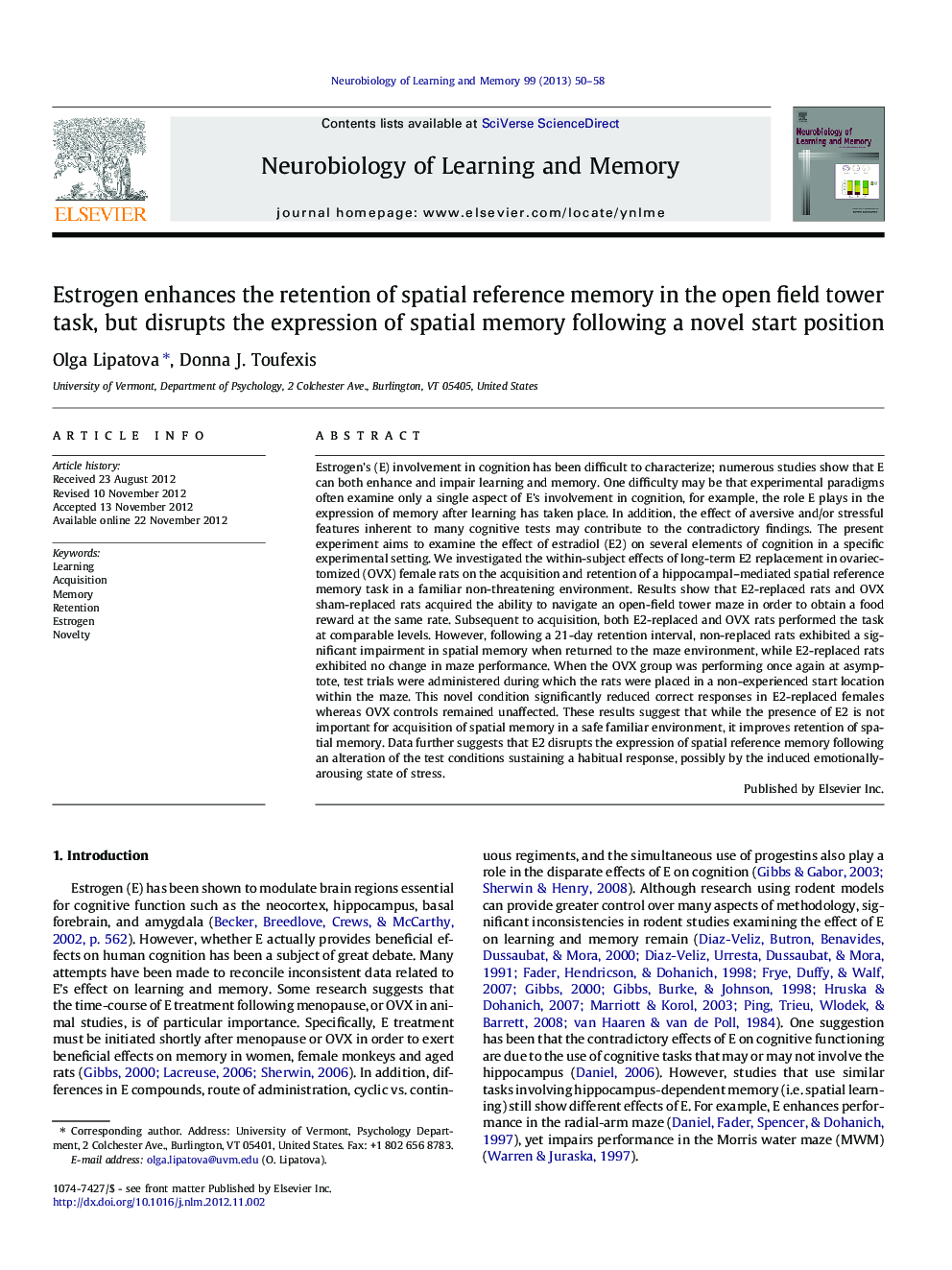| Article ID | Journal | Published Year | Pages | File Type |
|---|---|---|---|---|
| 936685 | Neurobiology of Learning and Memory | 2013 | 9 Pages |
Estrogen’s (E) involvement in cognition has been difficult to characterize; numerous studies show that E can both enhance and impair learning and memory. One difficulty may be that experimental paradigms often examine only a single aspect of E’s involvement in cognition, for example, the role E plays in the expression of memory after learning has taken place. In addition, the effect of aversive and/or stressful features inherent to many cognitive tests may contribute to the contradictory findings. The present experiment aims to examine the effect of estradiol (E2) on several elements of cognition in a specific experimental setting. We investigated the within-subject effects of long-term E2 replacement in ovariectomized (OVX) female rats on the acquisition and retention of a hippocampal–mediated spatial reference memory task in a familiar non-threatening environment. Results show that E2-replaced rats and OVX sham-replaced rats acquired the ability to navigate an open-field tower maze in order to obtain a food reward at the same rate. Subsequent to acquisition, both E2-replaced and OVX rats performed the task at comparable levels. However, following a 21-day retention interval, non-replaced rats exhibited a significant impairment in spatial memory when returned to the maze environment, while E2-replaced rats exhibited no change in maze performance. When the OVX group was performing once again at asymptote, test trials were administered during which the rats were placed in a non-experienced start location within the maze. This novel condition significantly reduced correct responses in E2-replaced females whereas OVX controls remained unaffected. These results suggest that while the presence of E2 is not important for acquisition of spatial memory in a safe familiar environment, it improves retention of spatial memory. Data further suggests that E2 disrupts the expression of spatial reference memory following an alteration of the test conditions sustaining a habitual response, possibly by the induced emotionally-arousing state of stress.
► We address controversies in literature regarding estrogen’s effects on cognition. ► Estrogen does not affect acquisition on a non-threatening spatial memory task. ► Estrogen protects memory retention throughout a 21-day interval. ► A novel position impairs performance on a spatial task in estrogen treated rats. ► Estrogen benefits memory in safe conditions and disrupts it in aversive conditions.
